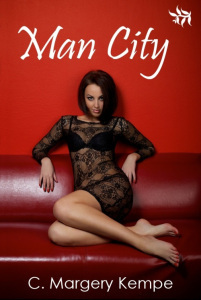Your Book is a Blind Date
Most writers are doing their best to get you to read their books, doing promotional tours and offering free reads at their websites (ahem) or contests to win a copy of the latest publication. All of this is good. The most difficult part of publishing right now is getting found in the sea of publications flooding out there every day.
But the big issue remains the same whether you’re talking about the latest Kindle release or a narrative scratched out on parchment: can you hook the reader?
I hesitated to respond to a comment from an acquaintance recently about how discouraged he had become at not getting anything published despite having the support of people where he had learned the craft of writing. Catching the eye of an editor is the first step in getting your book out to readers, so you need to be able to win them over first.
It struck me that the process is a lot like getting through a blind date — and it can be just as depressing, too! Sure it can help if you come recommended from someone they know, but it’s no guarantee that you’ll survive the meal.
If you’re having trouble catching the attention of editors (or readers) it could be that your book has something in common with these bad blind dates:
The Bore
We know the type, right? Yammers on and on and on without giving you a chance to slip a word into the conversation. Droning on and on about ‘important’ details but if you don’t have a context — or a story — to connect them to, they just come across as dull. Does your story load too much exposition at the start of a story? Get into history that doesn’t need to be there yet or explain background that’s meant to amplify the events or characters we haven’t had a chance to meet yet? Your story might be a bore.
The Preacher
He’s got a message and an answer and will harangue you with it until the cows come home, brow beating you with the one true word. Oh, it doesn’t have to be religion — it could be movies or books or even what restaurant is the best. The Preacher has an opinion and boy, will you hear it. Does your story have a ‘message’? Does your character know the ‘right way’ to do everything? Is the ending telegraphed so ham-handedly at the start that there’s no suspense whatsoever? Is the tone too preachy?
The Wallflower
The wall flower doesn’t say much. Every attempt at conversation ends in a pile of bricks. Where’s the excitement? Not at this wall. Nothing much seems to happen at all. Where’s the action?! Description isn’t enough to keep the reader interested. Make something happen. Employ those emotions! At least set fire to something already. 
The Travelogue
Who wants to spend the evening looking at pictures from your trip? How ever beautiful the location might be, it’s not a story. If you spend too much time building the world or sketching in the countryside, your reader might start yawning and looking at her watch. Make sure the beauty of the spot enhances the emotional drama; don’t just put all your research (or holiday snaps!) on the page. The location only matters because it’s where the story unfolds.
Remember, you have to charm your way past that first date; you have to charm your readers past the first sentence, the first page and the first chapter. Give them your best, hook the reader — keep them breathless and eager to turn the page.
Filed under: C. Margery Kempe, Kit Marlowe


Lady Smut
...more
- C. Margery Kempe's profile
- 52 followers






